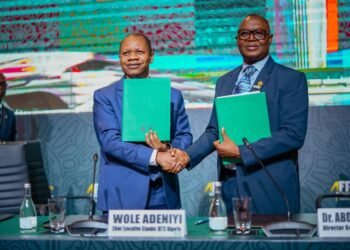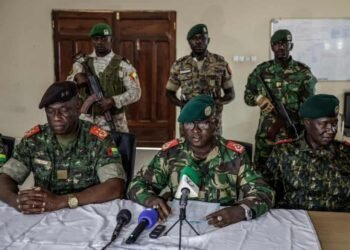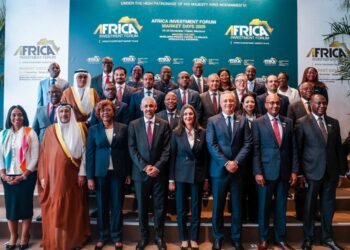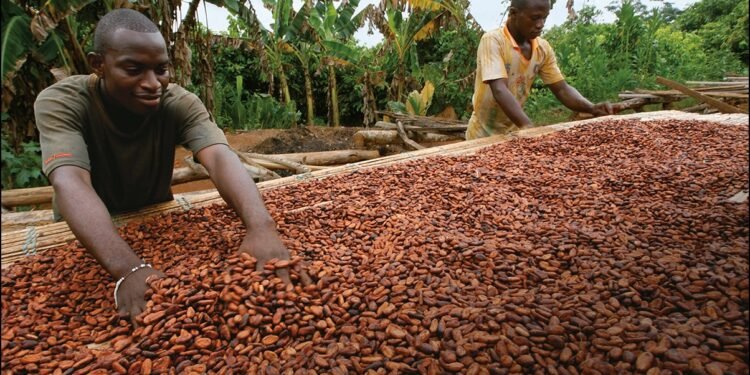After Wednesday and Thursday’s general elections, the Electoral Commission of Zimbabwe has revealed the final outcome, declaring the incumbent leader, President Emerson Mnangagwa as winner of the elections. The President is set to run his 2nd five-term in office as Zimbabwe’s first gentleman.
During the declaration, the electoral commission said, President Emerson Mnangagwa OF ZANU-PF polled 52.6% of total valid votes cast, while his fiercest rival, Nelson Chamisa and his Citizen’s Coalition for Change party (CCC), garnered 44%.
According to the commissioner of ZEC, Chamisa received more than 1.9 million of valid vote cast, while Mnangagwa received Zimbabwe over 2.3 million.
“Mnangagwa Emmerson Dambudzo of ZANU-PF party is declared duly elected president of the Republic of Zimbabwe.”
Justice Chigumba, Chair of Zimbabwean Electoral Commission.
The president averted a run-off by garnering over 50 percent of the votes cast, and voter participation was 69%.

According to the opposition, the elections were characterized by delays, which validates their claim of voter repression and cheating. Nelson Chamisa, the opposition flagbearer, condemned the delays as “a clear case of voter suppression, a classic case of Stone-Age rigging”.
In the same vein, the communications director for the opposition Citizen’s Coalition for Change, Promise Mkawananzi, implored that, the party has some reservations about the results, and therefore will not endorse the tally, labelling the result as “false”. “We cannot accept the results,” he asserted.
On the other hand, a handful of the ruling party’s supporters celebrated the results, as it were announced.

The Zimbabwean elections gained attraction from the Southern Africa regional groups as an evaluation of ZANU-PF’s dominance. According to international observers, the elections didn’t meet regional and international standards.
According to election observers, the elections were purposely planned to get the ZANU-PF party victorious. The head of the European Union’s monitoring team claimed that, the elections were climaxed with an atmosphere of uncertainty, describing it as a “climate of fear.”
Additionally, observers from the Southern Africa Development Community (SADC) claimed they witnessed certain challenges like problems with voter register, ban of opposition gatherings, voting delays, and biased media coverage.
“The elections were fraught with irregularities and aggrieved the people of Zimbabwe. The CCC has good grounds to go to court and challenge the outcome”.
Rejoice Ngwenya, Political Analyst.
The victorious ZANU-PF on the other hand, has denied all the allegations by the foreign observers. It said, the party had no undue advantage over the opposition, or planned of rigging the elections’ outcome.
However, Professor Nicole Beadsworth of Witwatersrand University asserted that, the final results of the elections, looked like an immediate response to criticisms from foreign observers, and the Southern Africa Development Community (SADC).
“We all have a lot of questions about the speed with which ZEC is announcing presidential results,” she said.

Parliamentary Results
Furthermore, ZANU-PF came out victorious in parliamentary elections, amassing 136 seats out of the 210 contested seats in a first-past-the-post system, as compared to 73 seats won by the Citizen’s Coalition for Change party. A seat remained unallocated due to the demise of its contender.
Also the ZANU-PF party will dominate parliament because, the President is mandated by the constitution to appoint an additional sixty female candidate under a party-list proportional method of representation.
In the run-up to the elections, Mnangagwa was widely projected to be victorious by many analysts, due the ruling party’s relations with the Zimbabwean Electoral Commission. The ZANU-PF party has clinched to power for four decades.
READ ALSO: UK Tertiary Institutions Amend Lecture Schedules For Students To Access Part-Time Jobs























